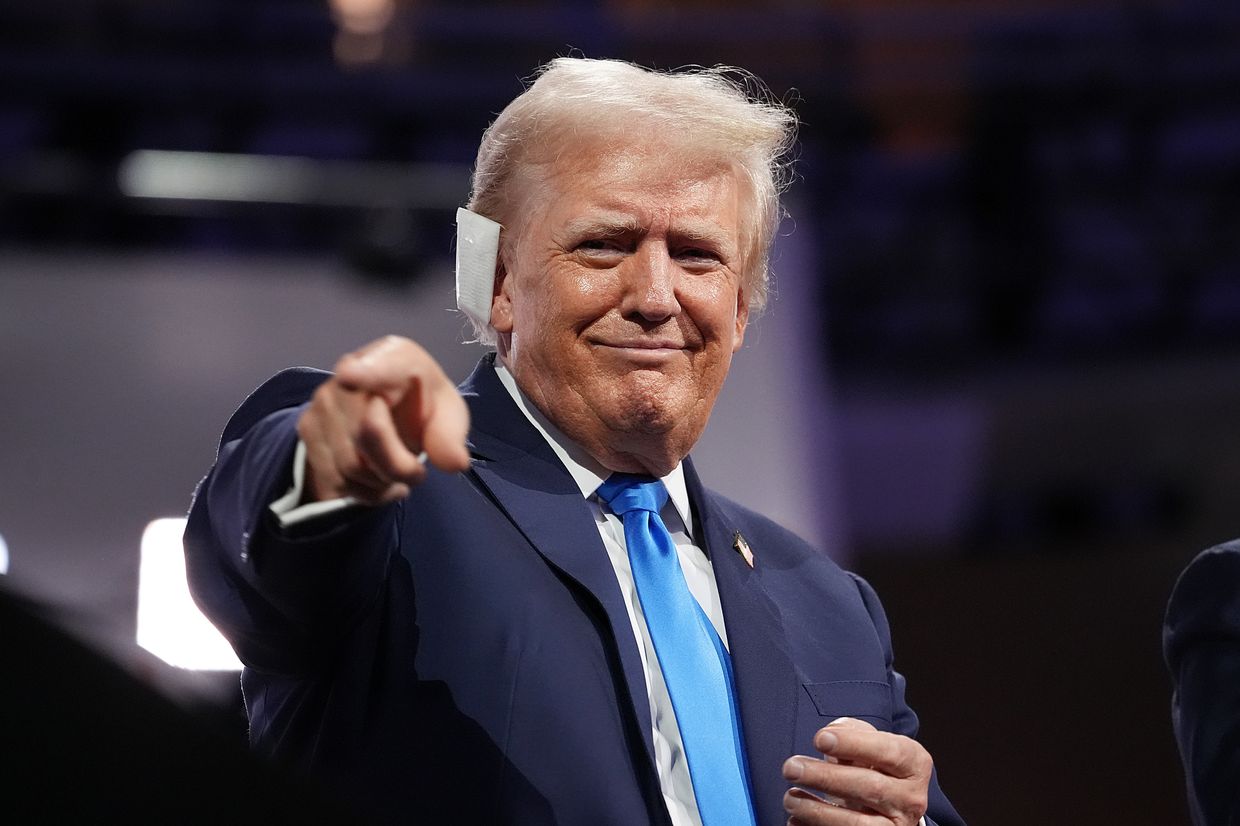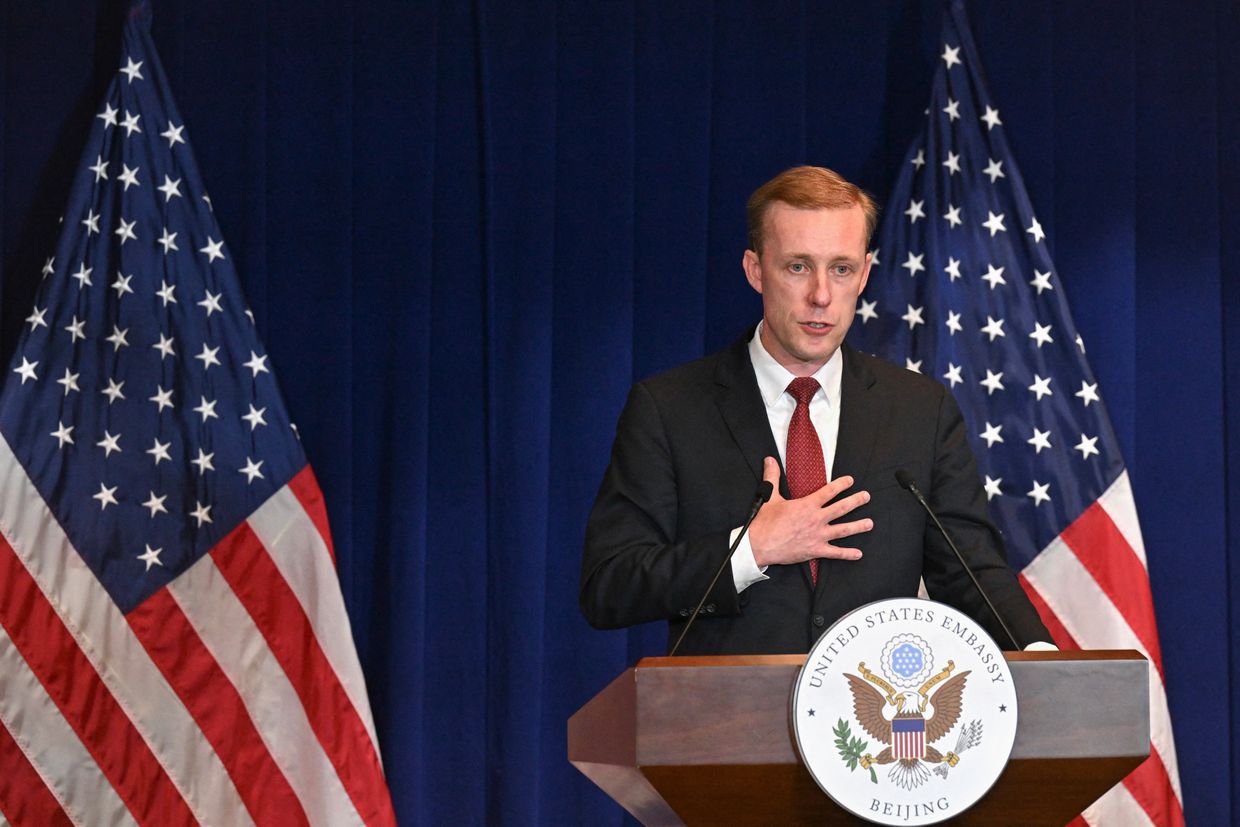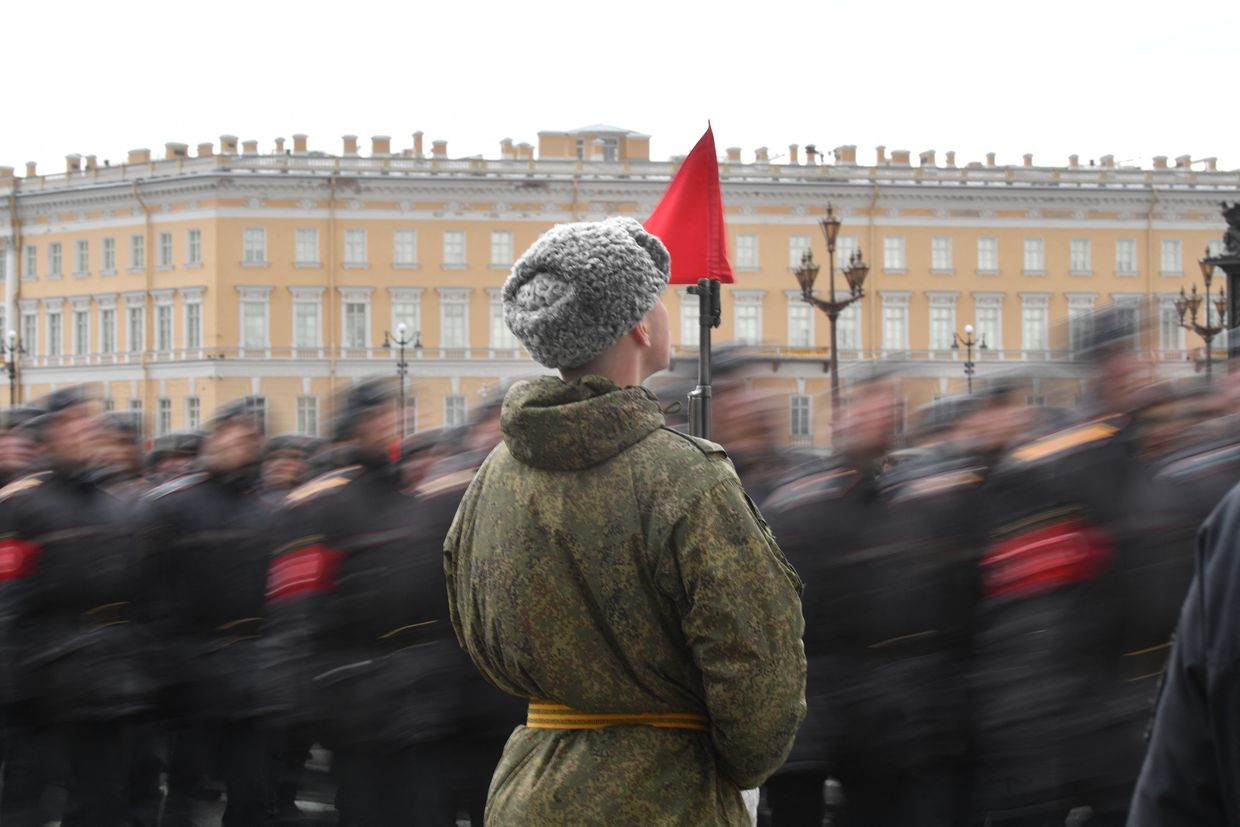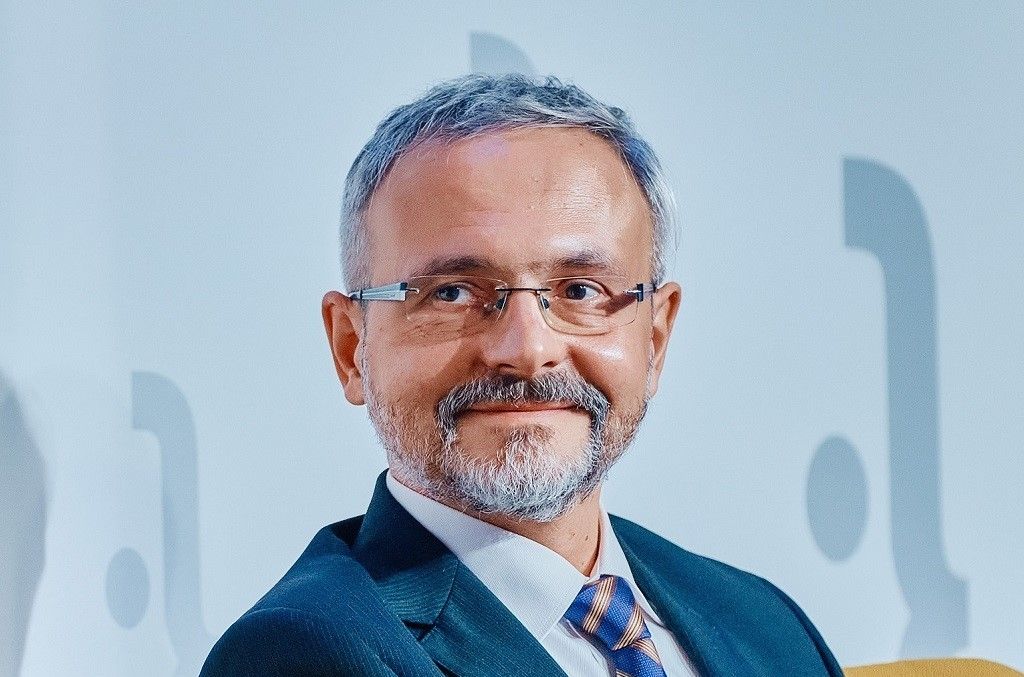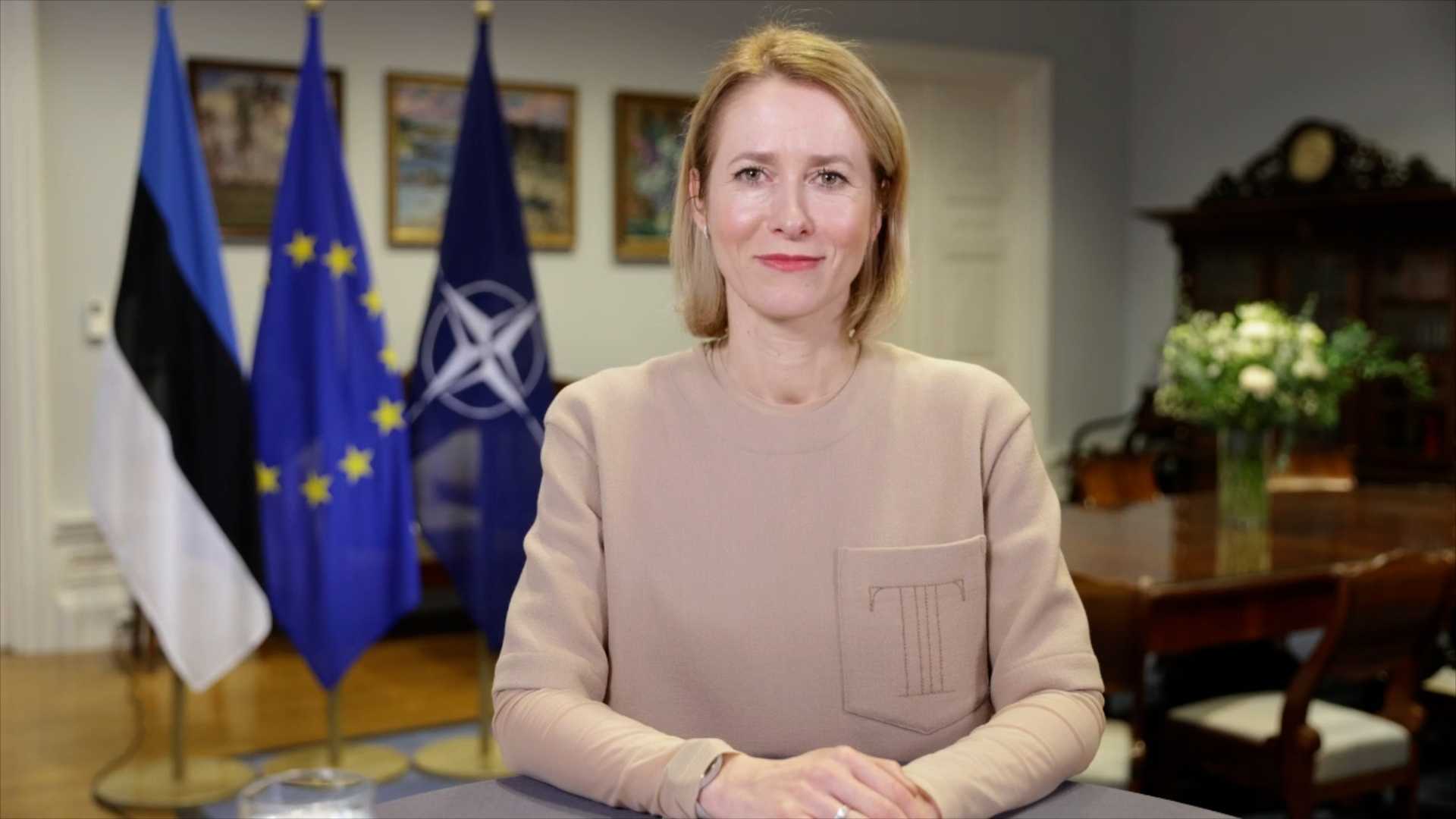Estonian President Karis: We have to cross all ‘red lines,’ then start forcing Russia out of Ukraine
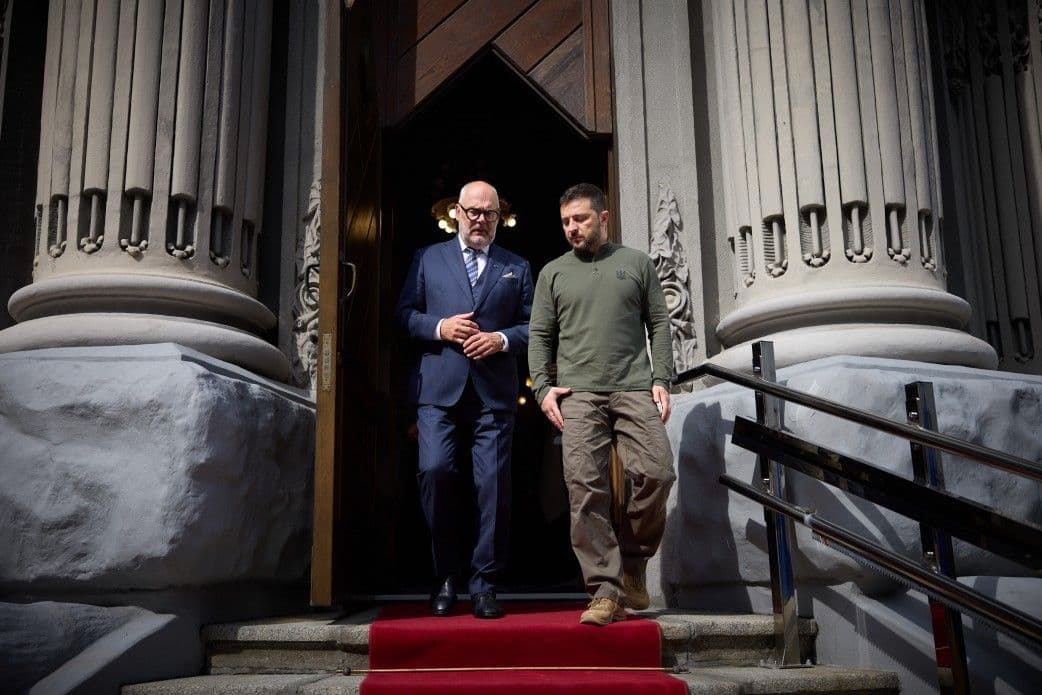
Estonian President Alar Karis walks with President Volodymyr Zelensky, during the Estonian president's visit to Kyiv on Sept. 13, 2024. (Ukrainian President's Office)
Estonian President Alar Karis is very diplomatic.
His country of 1.3 million people borders Russia, while the ongoing messy election campaign in Washington, D.C. forces European diplomats to question whether the U.S. will help countries like Estonia in case of a direct confrontation with Moscow.
Despite that, Karis doesn't avoid questions, saying that Russia must be defeated and NATO allies must do more to make it happen.
“We probably realize now that we have to cross all of these red lines and then start forcing Russia out of Ukraine,” Karis told the Kyiv Independent in an exclusive interview on the sidelines of the 20th annual Yalta European Strategy (YES) Conference in Kyiv.
According to Karis, NATO countries must do more for their own defense, Kyiv must be allowed to fire Western missiles without any restrictions, while peace with Russia can be only achieved on Ukrainian terms.
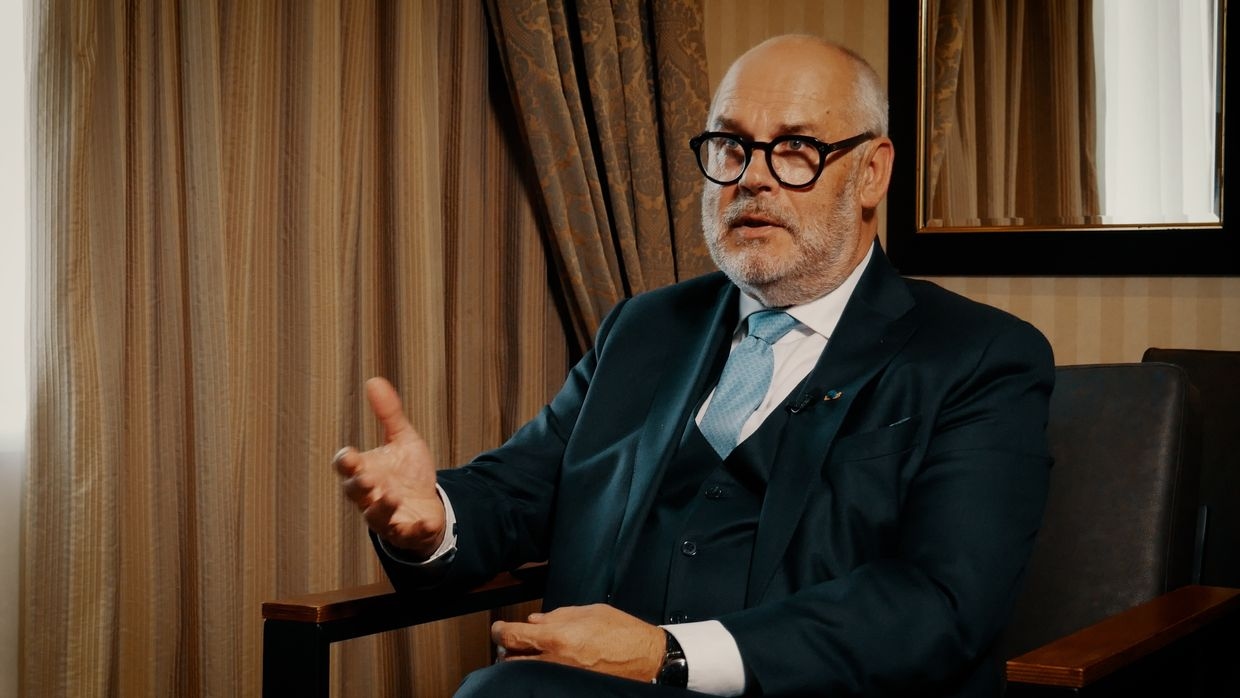
The Kyiv Independent: Mr. President, recently, there's been a lot of news about Russian drones hitting countries not far from Ukraine. Most recently Latvia, and before that, it was Romania, Poland… What's the Estonian position about shooting down Russian drones that enter NATO countries?
Alar Karis: We are in a very simple position, we should lift the restrictions on the use of weapons that Ukraine gets from the Western world so we can target these drones where they start (on Russian territory). When this happens, the drones never reach Ukraine, Latvia, or any other country.
The Kyiv Independent: Do you think because NATO countries don't down those drones, Russia thinks that NATO is not serious in its intention?
Alar Karis: I don't think so. Firstly, we have to know whether it's by accident or if it's deliberate. Latvia and Estonia rely on NATO. We have to start the discussions about how to behave in these kinds of situations, and the discussions have started already.
The Kyiv Independent: If, by accident or intentionally, a Russian drone enters Estonia, is the Estonian military allowed to shoot down the drone, or does it need to ask NATO beforehand?
Alar Karis: It's a very hypothetical question: What's going to happen and if. As I said, we discussed with our allies, how to behave in this kind of situation.
The Kyiv Independent: Concerning the American position, all the European allies are looking to Washington for its decision. Do you think that Estonia is protected enough by being a member of NATO if ex-President Donald Trump enters the White House?
Alar Karis: Donald Trump has been president once, and, at that time, we were a NATO member. We don't only rely on NATO allies. We also spend quite a number of our own resources on defense. Next year, it'll be about 3%. What we should do, and we do, is to convince other NATO countries to put more than 2% on defense.
The Kyiv Independent: Concerning the recent debate, former President Donald Trump said on multiple occasions that he wants peace, but he never said that he wants Ukraine to win. Do you believe that in the West (especially in the United States), most politicians and both presidential candidates want Ukraine to actually win this war?
Alar Karis: We want to defeat Russia, that's for sure. You have to understand that presidential elections in the U.S. mean that there's a debate going on different issues. It's a different situation than when one becomes a president, so let's wait. It's the American people's decision who is going to be the president of the United States. For us, it's very important to keep this transatlantic bond.
As far as defense (goes), the U.S. should be number one (leading) in this case.
The Kyiv Independent: There has been a recent change of doctrine. Now, there is a policy that all three Baltic states want to build a defense line, not allowing Russians to enter the country as a whole. Do you think that Estonia and your neighboring countries are now well-equipped to hold off the Russian army in case it wants to invade?
Alar Karis: Of course, we are. But the doctrine is, in a way... What should we do? We are a small country. That means we have to make sure that the enemy does not enter our territory. It's as simple as that.
The Kyiv Independent: There has recently been an uptick in Estonian activity. Your former prime minister will be the foreign secretary of the European Union. Do you feel that now, finally, after years of war in Ukraine, Western capitals are hearing the Eastern flank of NATO and the European Union more?
Alar Karis: I guess so. Our Western allies, which are much further away from the Russian border, started to understand what this war in Ukraine means not only for Ukraine but also for them. It's not only us who are next to Russia; it's Europe and NATO countries. I think our partners have realized that. And they started to assist and help Ukraine and also to think about their own defense.
The Kyiv Independent: Do you think that if Washington, London, and Berlin had listened more to Tallinn or Warsaw before the start of the full-scale war, the situation would have been different?
Alar Karis: Well, definitely, it would've been different, but we don't know what kind of difference it would have been. These countries are used to this peaceful life – no war, nothing. And we were naive. But we did wake up earlier than our friends far away. What would have happened, I don't know.
The Kyiv Independent: Do you see an increase in Russian intelligence activity or Russian psyops (psychological operations) in Estonia?
Alar Karis: Russian intelligence is everywhere. And its propaganda is everywhere, not only in Estonia, but all over the world. You see, even in the United States, they interfere in elections, not only in Europe. So we have to be ready for that. Also, now there is misinformation that is spread by Russia, cyber-attacks, and so forth. So it's not a question of Estonia. It's everywhere, and we have to prepare for this. We have been prepared for cyber-attacks for quite a long time, because they started in 2007. We also start to convince also Western parties that this is a very important issue.
The Kyiv Independent: At the beginning of this year, there was a huge case with one professor in Estonia convicted of being a Russian agent in Estonia. How has the Estonian security force scaled up its activity to make sure that there are no Russian agents currently in Estonia?
Alar Karis: As you said, we did catch these agents. That means our intelligence works pretty well. And it's not the only case. It has also happened before. So we are ready. Also, agents become smarter. We have to be ready, especially in universities, where a lot of new information and innovations are available. We have to be careful. That's it.
The Kyiv Independent: You mentioned at the beginning of our interview that Ukraine needs to be allowed to strike Russian targets in Russia. Do you actually know why it's taking so long for many countries to allow this?
Alar Karis: One thing is probably that some countries and some leaders are afraid of escalation. There is no escalation anymore. Russia has crossed all red lines already. There is no point in being afraid of escalation. These restrictions are just pointless.
The Kyiv Independent: Do you think that the war could have been drastically different if all of this had been allowed a year or two ago?
Alar Karis: Probably. But the thing is, any country has a different history, political parties, and ideas. That means it does take time. We are not countries with dictators; we are democratic countries. That means you have to also convince your people, not only politicians.
Unfortunately, it does take more time. We also hoped that this one step would help – it didn't; the next – didn't either. We probably realize now that we have to cross all of these red lines and then start forcing Russia out of Ukraine.
The Kyiv Independent: Russia always says that if its territory is attacked, then it can use nuclear arms. Right now, we have Ukrainian troops in Kursk Oblast. Do you think that it's still a relevant possibility that Russia will use nuclear weapons, or the European allies and the United States should stop worrying about Russian nuclear saber-rattling?
Alar Karis: Russia knows very well that it's not the only nuclear power in Europe and in the world. I don't think we are going to test a nuclear attack on any country.
The Kyiv Independent: Estonia has been doing a lot for Ukraine since day one. Can you please explain why, from the first day of the full-scale invasion, Estonia was one of the countries that provided both the most military and humanitarian help (as a percentage of GDP) to Ukraine and why, despite years of war, Estonia continues to do it?
Alar Karis: We have our own history, and we know what occupation meant when the Soviet Union occupied our country. We and our parents have this kind of memory – that's one reason. As a small independent country, we can't afford for these powerful countries to cross the border of independent countries. We'll continue to support Ukraine, of course.
The Kyiv Independent: Do you think that the world is now tired of this war? We hear some voices saying that maybe Ukraine needs a plan B, maybe Ukraine won't be able to de-occupy all of its territory, and it needs to hold peace talks with Russia. Do you feel that as long as this war continues, more voices in the West will try to persuade Ukraine to find a solution to the war that doesn't involve de-occupying all of its territory?
Alar Karis: At this very moment, we can't afford these big peace talks because (Russian President Vladimir) Putin has already said what he wants. He wants NATO back to the 1997 borders, Donbas, other Ukrainian regions, and so forth.
That means, as I said, we should push Russia back to its territory and convince it that this war was useless. Then we can sit behind the table and start talking. We have a peace plan – a peace formula provided by Zelensky. It's the only peace plan at this very moment.
The Kyiv Independent: Do you think NATO countries and NATO as a whole are doing enough to help Ukraine win?
Alar Karis: It's never enough. We could do more. We could do much more. Also, while here in Kyiv, I mentioned that we should do more — not only Estonia and other states, but we all. We are on the side of democracy, and we should do much more.

